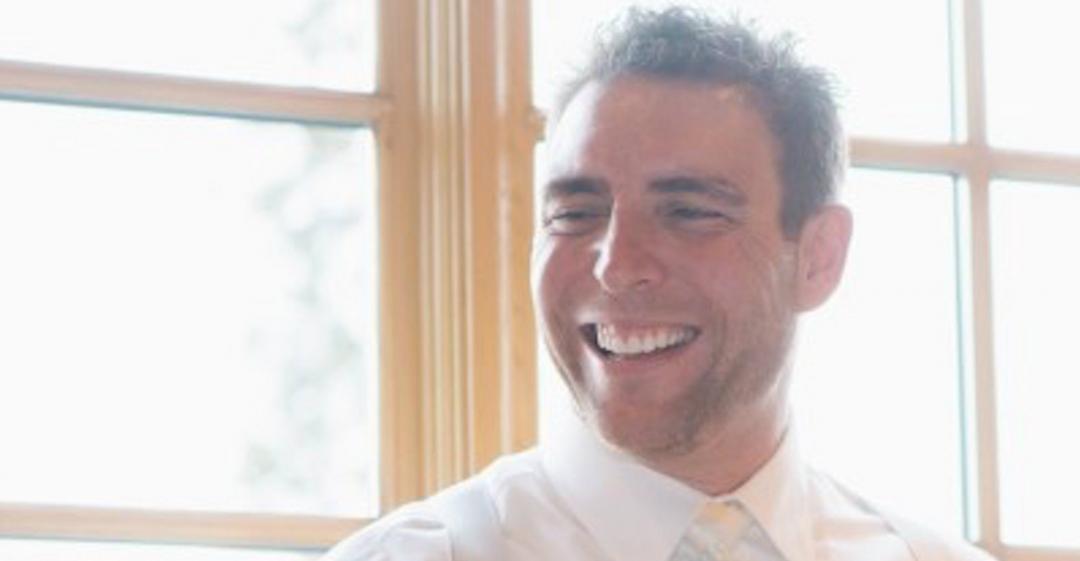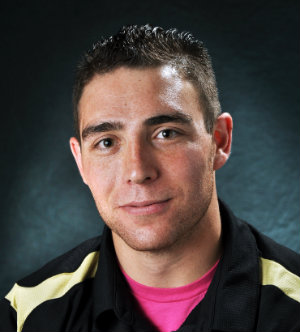“I sleep better at night and feel a sense of fulfilment I never thought possible.”

What work were you doing previously?
I worked in account management (sales) for a brewery.
What are you doing now?
I'm a Software Engineer.
I work for SPS Commerce, a corporation that produces cloud-based supply chain management software.
How did you feel about your work before you decided to make a change?
Sales, although quite lucrative and temporarily entertaining, was too meretricious for my liking.
It wasn't that the work didn't present a challenge. On the contrary, there was something quite fulfilling about listening to a customer's needs, digesting the information then presenting a solution and seeing them sign on the dotted line. That was a real challenge. The problem was more the hollowness of the enterprise. Despite the initial high from closing a deal, there was nothing afterwards to sustain me.
It eventually felt pointless to chase the same fleeting high and simply cash a commission cheque rather than work on something more tangible.
Why did you change?
I like to create things.
I am at my most inspired when I can build. Software is the modern means of constructing something wonderful.
I had friends who worked in software and I got to see first-hand how powerful software engineering can be. It's the modern-day industrial revolution. You can take an idea, construct a minimum viable product and test your hypothesis with real-time user feedback with very little overhead cost. The only barrier to entry is your own personal abilities. That was truly incredible to me.
The prospect of seeing my ideas take shape was almost like the prospect of breathing life into inanimate objects. Those ideas were mine – I could build them, mould them. And as long as I had the technical skill, the sky was the limit.
When was the moment you decided to make the change?
I was trying to collaborate with a developer on a personal application and the developer was stonewalling me.
I realised he wasn't doing anything that I couldn't do. So, I vowed to learn the trade to no longer have to rely on flaky developers.
Are you happy with the change?
I could not be more pleased.
I love the autonomy of my work. Although I'm a part of a team of engineers and we require collaboration before any code changes can go live, I still get to decide how something is going to be built.
I also get to work for extended periods on my own. I never thought this possible given my other professional experiences. With sales, someone is always over your shoulder. That's incredibly unnerving. Now, even when someone rejects my code changes or asks for revisions, I'm OK with it. I like building, destroying and rebuilding.
It is nice to control the full length of the cycle and see my work affect an enterprise-level application. Coding has revealed to me that the work itself will provide all of the validation I'll ever need.
What do you miss and what don't you miss?
I don't miss the grind of sales.
Software is liberating. I sometimes miss the face-to-face interactions of sales, but that's nothing compared to the intrinsic value of building something from scratch.
Sales for me worked like this: take a list of prospects, warm them up, vet the truly interested, discard the time wasters, thin the pipeline for closable deals, hound the interested leads, follow up relentlessly, then finally get the deal closed. Enjoy the victory temporarily, then repeat the entire cycle next month (as I had a quota to hit). And that quota never went down. It either stayed at the current level or increased based on the number of deals over the line I was for the month. It was, in its entirety, disincentivising.
Software doesn't work like that (at least for me). We use an agile approach, meaning we go through continuous iterations of the project. The work never feels redundant, but builds upon the current application's scope. It's like collaborating on a work of art. We start simply, add complexity and test for competency.
I love it. It requires almost the exact opposite mindset of a salesman. I may never achieve the wealth of a VP of Sales but I sleep better at night and feel a sense of fulfilment I never thought possible.
Plus, I drink a whole heck of a lot less.
How did you go about making the shift? And how specifically did you choose your new career?
I started taking free classes through Coursera and, despite the difficulty, I loved the challenge.
So, I decided to learn the trade in full. I enrolled on an online apprenticeship with a coding school – Firehose – as it was the most cost-effective option for learning to code.
After finishing, I began interviewing for positions and was contacted by a recruiter. I interviewed and conducted due diligence on the company, and found a great culture which would help me progress as a developer. I wanted to find a place that would foster my growth professionally and allow me to learn on my own as well.
What didn't go well? What 'wrong turns' did you take?
I took on interviews I shouldn't have.
I was playing for Team Israel in the Indoor Lacrosse World Games during that year and I had to travel to Tel Aviv to fully qualify as an Israeli citizen. I was attempting to prepare for interviews while travelling and they didn't go well.
I realised, after the fact, that I should have only taken on interviews I was prepared for and not put in myself in a position to fail.
How did you handle your finances to make your change possible?
I'd been putting away money into a savings account as my wife was going back to school.
I was also able to continue working in my sales role as the Firehose online bootcamp wasn't a full-time endeavour. Even though I had to dip into my savings, I was partially able to offset the cost of the programme.
What was the most difficult thing about changing?
Switching to an unknown field with no experience made interviewing incredibly difficult.
I was attempting to build projects in languages I was unfamiliar with and I had to learn skills on the fly, while simultaneously demonstrating my knowledge of the field.
What help did you get? 
I had a few friends who worked in the technology sector, so I picked their brains about the best approach for interviews.
I also had Ken Mazaika, Firehose's co-founder and my mentor, to ask for guidance. He was invaluable.
What resources would you recommend to others?
Free online classes are a great way to get a taste of the industry.
Make sure you like what you're doing before committing time, energy and money to it.
Also, collaborative open-source projects are a great way to experience group coding. Unless you are a consultant, you'll never work in isolation, so you should understand the nuances and pain points of collaborative work.
What have you learnt in the process?
Determination is key.
Despite initial failures while interviewing, I gained valuable feedback and modified my approach to future interviews.
I've also learned that logging statements, detailed explanations and succinct code are crucial to being a good developer.
What do you wish you'd done differently?
I wish I'd taken more time between interviews to learn from my mistakes and better prepare.
I was interviewing almost daily, so it was difficult to take people's feedback and use it constructively.
What would you advise others to do in the same situation?
Make sure you know what you're interviewing for before you agree to demonstrate your coding knowledge.
Often, people who switch careers are so thrilled just to get an interview that they rush through the process and don't set themselves up to succeed. Preparation is key as feeling prepared breeds confidence.
Also, failures are not catastrophic. Interviewing is just like writing code. At first it's broken, but you iterate and adjust until you finally create that perfect method and the code runs without a bug. It takes time and patience but the feeling of success is more than worth the struggle.
To find out more about the Firehose programme, visit www.thefirehoseproject.com.
Also, find out more about The Firehose Project in our Retraining Directory.
What lessons can you take from Tate's story to use in your own shift? Let us know in the comments below.



